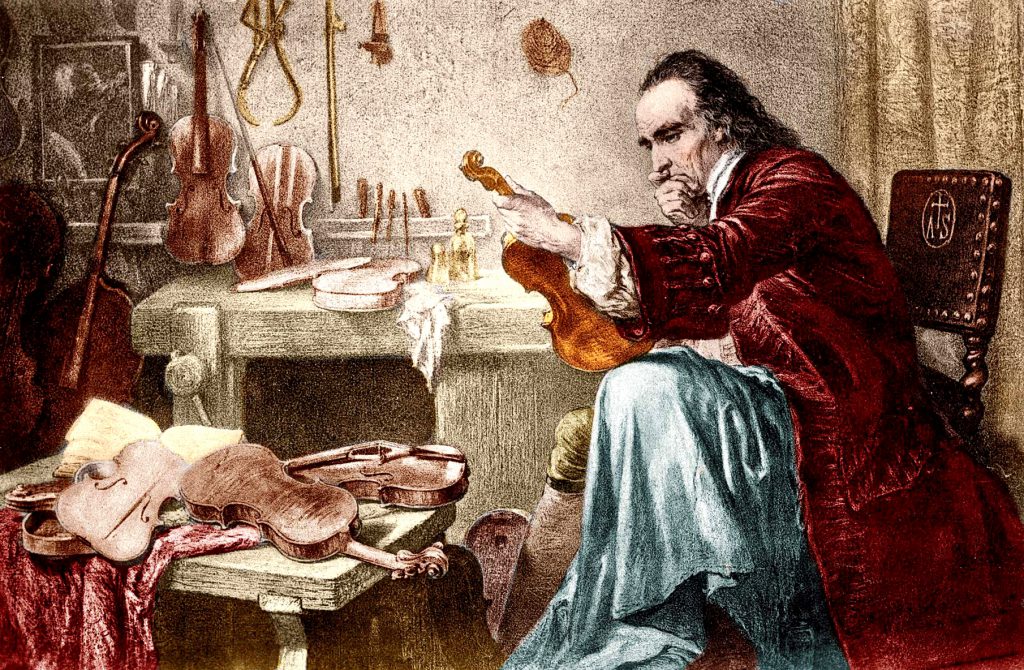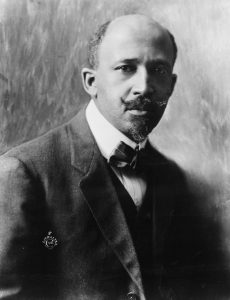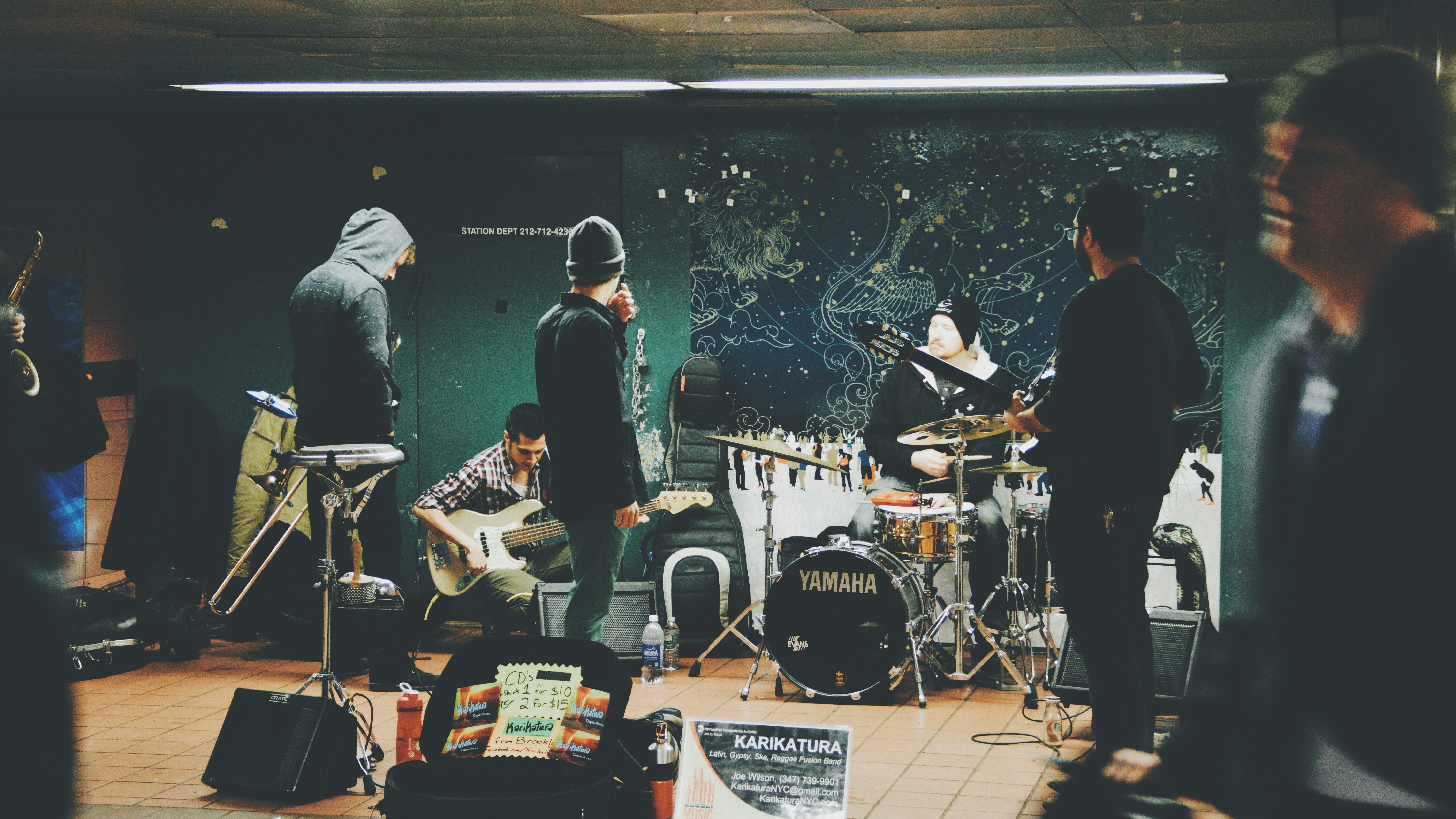As my earlier discussions of Black music have hopefully illustrated, music can also have a significant socio-cultural agency with implications reaching into the realms of politics and ethics. In a way it could be boiled down to the notion of “good music”. We’d all like to think the music we like is “good”, but there are nearly as many definitions – often less than precise – of “good music” as there are listeners.
Aesthetic spaces
This affords music an ethical dimension. Sharing musical tastes – musically marked aesthetic spaces – is a way of connecting ourselves with others; or distinguishing from them, i.e. performing our identity through musicking.
There are many factors and agencies shaping this “aesthetic space” in which we form and articulate our ideas of good music. Our musical tastes, much like all our other tastes, have their roots in our upbringing and socio-cultural environment. They are also subject to changes in our environment and our choices within it, shaping the development of our tastes.
|
Treme Sidewalk Steppers 2nd line February 6th 2011
|
And unless we consider music to be an “auditory cheesecake” – and I hope you don’t – the choices we make regarding the kinds of music we like and consume, are not irrelevant. They speak volumes about our socio-cultural, and even political, dispositions – albeit often quite ambiguously.
Music and ideas/ideologies
Let’s try and interrogate this proposition with some concrete examples, shall we? In what kinds of situations do musically created aesthetic spaces have an ethical dimension, and how does this happen?
I have two premises for this thought experiment: First, music as sound is not capable of carrying meanings unless these sounds are – and they always inevitably are since musicking involves human agency – performed and/or experienced in a socio-cultural context. And second, choices, for the present purposes, are always “choices of” something within our reach.
Associations through musical sounds
I base the first premise on Martin Heidegger’s phenomenology and his notion of “Being-in-the-world”; the idea that we interpret the world around us immediately upon perceiving it. Any abstraction of the perception is an effort to “undo” the already made interpretation in order to “objectively” encounter the world. Heidegger’s example is an object we’ll immediately recognise as a table. Any attempt to perceive this object as e.g. a construction of specific material and particular assemblage requires an active attempt to “forget” that it is a table in order to abstract it. He also discusses “sound objects” to demonstrate his theory:
What we ‘first’ hear is never noises or complexes of sounds, but the creaking wagon, the motor-cycle. We hear the column on the march, the north wind, the woodpecker tapping, the fire crackling… It requires a very artificial and complicated frame of mind to ‘hear’ a ‘pure noise’. (Being and Time 34: 207)
Connotations of musical instruments
This also entails that it’s not so much the physical properties of the sounds of brass and wind instruments as such that raise in us e.g. an image of a pastoral landscape or a military band. Rather, this comes from the historical use of these instruments in western classical music to depict nature and rural life and the military music tradition. And this again recalls the use of horns as a signal for e.g. approaching postman in rural villages or when hunting and the association we still easily make between flutes and shepherds. Or at least it did when Beethoven wrote his 6th symphony.
Then again the sound of the French horn might not bring forth these kinds of associations for you, but perhaps rather remind you of film music as in the theme of Universal Studios or the brass intro of Richard Strauss’ Thus said Zarazusthra in the opening of Stanley Kubrick’s 2001 Space Odyssey (see my earlier discussion of this). In yet other words, it depends on your musical background, including where and when you have lived, etc. – i.e. your socio-cultural background.
Probably needless to say that my examples here are drawn from my own cultural environment of Western Europe and should you be e.g. Asian, African, or South American you’d probably have different associations with these sounds; or imagine different sonic representations for e.g. nature and rural life.
Social life of things
The bottom line is that the sound itself is arbitrary. Any association(s) a sound may call forth is a result of the “socio-cultural life” of the given sound. This is akin to what the anthropologist Arjun Appadurai has discussed pertaining to the “social life of things“. Objects are usually made for a more or less specific purpose, and their value depends largely on their scarcity or abundance. As time passes and the world changes, all these factors may change; the original purposes may no longer be relevant, objects may become scarce or more abundant due to changes in methods of production and/or the availability of their raw materials.
All this also applies to music as materials to make certain instruments may become scarce – e.g. big enough trees growing on mountains for making double basses – or instrument-making techniques lost in generations – e.g. the violins of Stradivari for which the secret was long thought to be in the varnish he used.

As my examples above illustrate, the most significant changes impacting music, however, are socio-cultural. The widely different uses of music create various associations with particular compositions/instruments/genres, etc. These associations may again be quite remote from their origins, and impossible to predict as we continue to – not only consume – but make music in ever new ways. New music is made by recycling old musical ideas, and old music gets new meanings in new contexts.
Political music
Some rather radical political thinkers conceive of nearly all human actions and undertakings as political; even seemingly apolitical enterprise as e.g. popular music without a political message can be viewed as political as it doesn’t challenge, and therefore implicitly accepts, the status quo.

One such thinker was W.E.B. Du Bois, one of the leading post-Reconstruction black intellectuals in the United States. He wrote for instance that “a black artist is, first of all, a black artist” and was strongly of the opinion that the emerging Black American culture of the late 19th and early 20th centuries needed to reach, and preferably surpass, the mainstream white culture with any measures; an effort in many ways culminating in – albeit by no means concluding with – the Harlem Renaissance. This view was against the “pragmatic” one of Booker T. Washington and his supporters, who thought that blacks should rather keep to “their place” in society.
Du Bois’ life is a rewarding study for anyone interested in the history of racial relations in the United States, as it stretches from right after the Emancipation to just before the declaration of Civil Rights Act.
Celebration of life
But then again, even music not taking any political stance could be said to be political by its very act of celebrating life itself, sometimes against the odds. As I’ve discussed before pertaining to Black music, the social aesthetic of the music centres around the people and their lives, not on the actual music.
There’s a lot more to be said about the topics I’ve touched on here. Anyhow, I’ll stop here for now and come back with some further thoughts soon.










